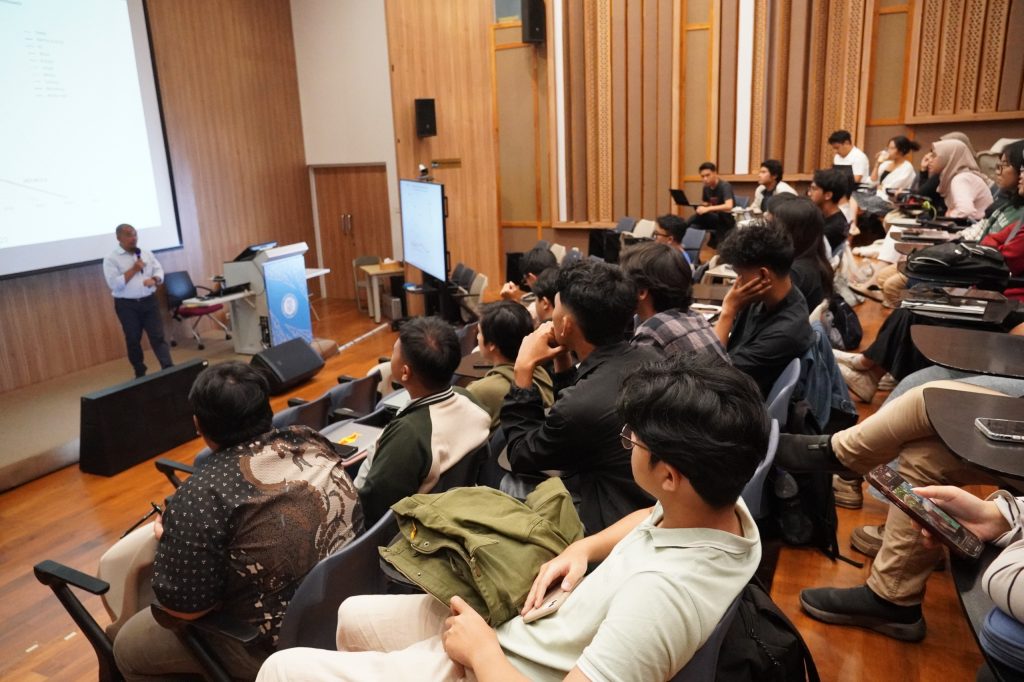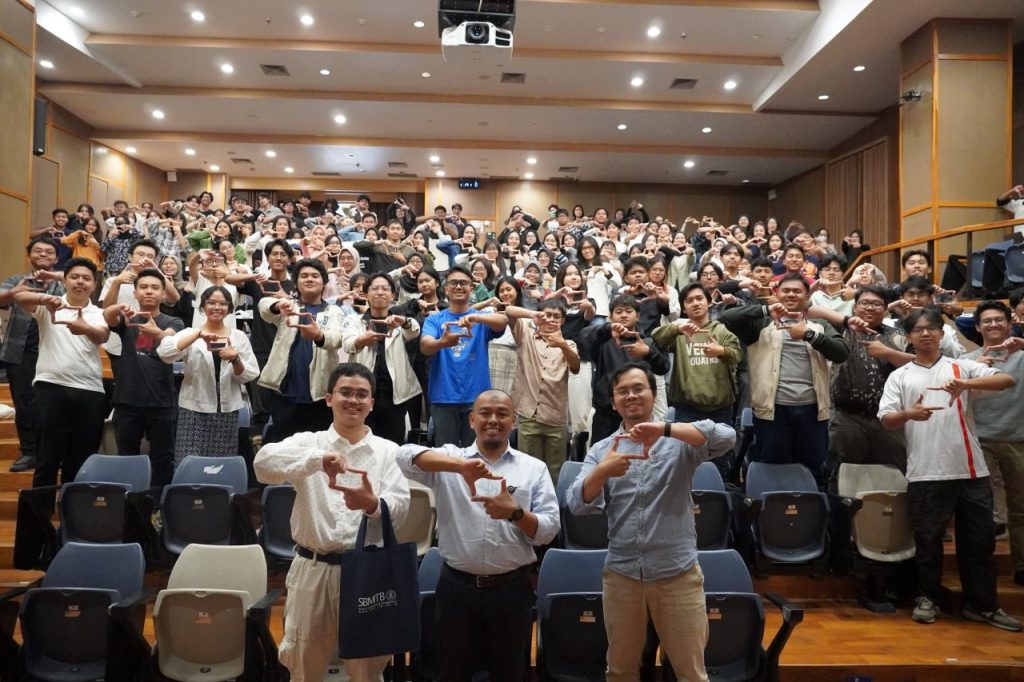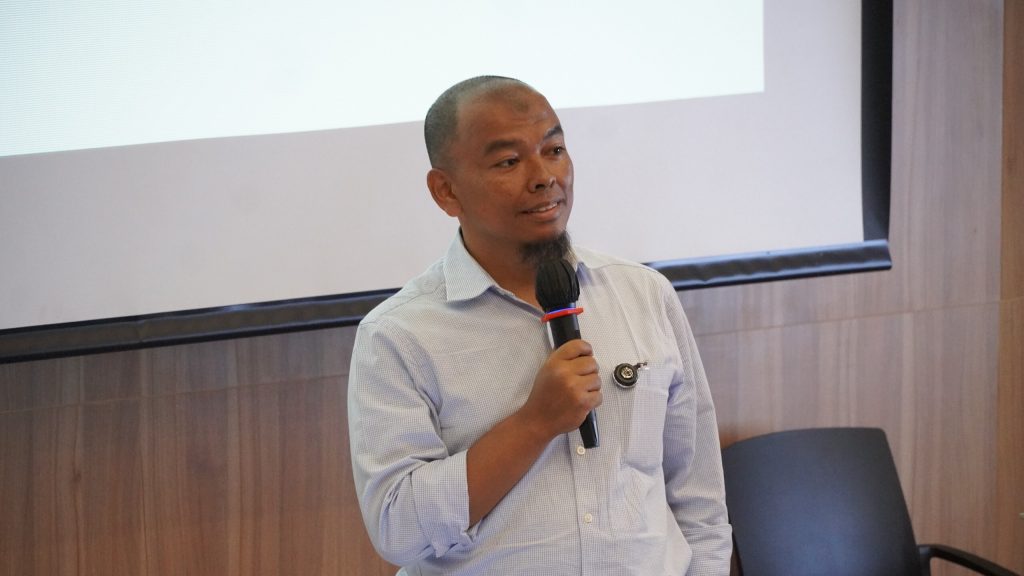The decision-making process for addressing climate change is becoming increasingly complex due to the numerous interrelated variables involved. As a result, policymakers cannot often make swift, informed decisions. This issue is exacerbated by the culture of social media that shapes public opinion, often making people prefer the “lesser evil” in the process of selecting leaders or climate policies.
This perspective was shared by Heru Prama Yuda, MA, a World Bank Agriculture Specialist and Senior Partnership Manager at Earth Security, during a guest lecture at SBM ITB on Thursday (7/11). Heru spoke on the challenges of making decisive decisions for global climate action in a discussion titled “Challenges to Being Decisive in Global Climate Action.” Drawing on his extensive experience with the World Bank and Earth Security, Heru elaborated on the complexities of decision-making amid the growing urgency of climate change.
During the lecture, Heru introduced the concept of the tragedy of the commons, where overexploitation of natural resources, such as grazing, fishing, and coffee consumption, leads to a reduction in the availability of resources.

“It’s as if we are using the earth’s limited resources without limit,” said Heru.
He warned that if current consumption patterns continue, it will take at least 1.7 times the earth’s resources to support human life—something that is clearly impossible.
Heru emphasized the importance of implementing carbon market systems to mitigate environmental damage. He explained that the World Bank supports climate change mitigation by developing a digital ecosystem for the carbon market. This system provides economic incentives for countries like Indonesia to conserve forests and reduce carbon emissions. For instance, East Kalimantan reduced emissions by 20 million tons of CO₂ last year and received $100 million in funding due to its efforts.
Indonesia, home to approximately 10% of the world’s primary forests and 20% of global mangroves, faces significant challenges in preserving its environmental sustainability. Despite the government’s target of achieving net zero emissions by 2060, Heru pointed out that the country relies heavily on coal as its primary energy source. He stressed the need for more assertive policies to meet this target and called on Indonesia’s younger generation to take decisive action for environmental protection.
“Indonesia still holds many natural assets of global importance. It’s time for us to become a generation that dares to take real steps toward the sustainability of our planet,” he urged.






